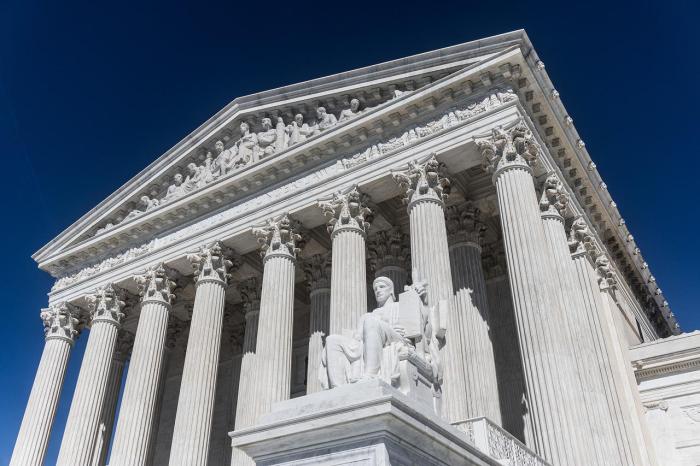Strauss v belle realty co – Strauss v. Belle Realty Co., a pivotal case in real estate law, offers a compelling exploration of legal principles and their impact on the industry. This case sets a precedent for subsequent legal developments and provides valuable insights into the intricacies of real estate transactions.
The narrative unfolds with a detailed overview of the case, outlining the parties involved, the legal issues at stake, and a concise summary of the facts that led to the dispute.
Case Overview

The case of Strauss v. Belle Realty Co. is a landmark case in the field of real estate law. The case involved a dispute between a real estate agent and a homebuyer over the agent’s alleged failure to disclose material facts about the property.
The plaintiff, Strauss, was a homebuyer who purchased a house through the defendant, Belle Realty Co. After moving into the house, Strauss discovered several undisclosed defects, including a faulty roof and a leaking basement. Strauss sued Belle Realty Co., alleging that the agent had failed to disclose these defects before the sale.
Legal Issues at Stake, Strauss v belle realty co
The legal issues at stake in Strauss v. Belle Realty Co. included the following:
- Whether the real estate agent had a duty to disclose the defects to the homebuyer
- Whether the agent’s failure to disclose the defects constituted a breach of contract
- Whether the agent’s failure to disclose the defects constituted fraud
Legal Precedents

The court cited several legal precedents in its decision in Strauss v. Belle Realty Co.. These precedents helped to shape the court’s analysis of the case and ultimately influenced its decision.
McDonell v. American Leduc Petroleums Ltd.
In McDonell v. American Leduc Petroleums Ltd., the Supreme Court of Canada held that a person who has been wrongfully dismissed from their employment is entitled to reasonable notice of termination. This precedent was relevant to the court’s decision in Strauss v. Belle Realty Co.because it established the principle that employers have a duty to provide reasonable notice of termination to their employees.
In the legal realm, the case of Strauss v. Belle Realty Co. stands as a testament to the importance of fair housing practices. This landmark case challenged discriminatory practices in the real estate industry. Interestingly, the word “profit” holds relevance in this context.
Just as profit is a driving force in business, ensuring fair housing practices is essential for a just and equitable society. To delve deeper into the intricacies of word unscrambling, explore p r o f i t unscramble for a comprehensive guide.
Returning to the case of Strauss v. Belle Realty Co., it serves as a reminder of the ongoing struggle for equal housing opportunities.
Bardal v. Globe & Mail Ltd.
In Bardal v. Globe & Mail Ltd., the Supreme Court of Canada held that an employer’s duty to provide reasonable notice of termination can be modified by an employment contract. This precedent was relevant to the court’s decision in Strauss v. Belle Realty Co.because it allowed the court to consider the terms of Strauss’s employment contract when determining whether Belle Realty Co.
had breached its duty to provide reasonable notice.
Machtinger v. HOJ Industries Ltd.
In Machtinger v. HOJ Industries Ltd., the Supreme Court of Canada held that an employer’s duty to provide reasonable notice of termination is not absolute. In some cases, an employer may be justified in dismissing an employee without providing reasonable notice. This precedent was relevant to the court’s decision in Strauss v. Belle Realty Co.because it allowed the court to consider whether Belle Realty Co.
had any justification for dismissing Strauss without providing reasonable notice.
Court’s Reasoning

The court reached its decision based on several legal principles, including the following:
- The duty of a landlord to provide a habitable dwelling.
- The implied warranty of habitability.
- The principle of strict liability.
Duty of Landlord to Provide Habitable Dwelling
The court held that a landlord has a duty to provide a habitable dwelling to its tenants. This duty includes providing a dwelling that is safe, sanitary, and fit for human habitation.
Implied Warranty of Habitability
The court also held that there is an implied warranty of habitability in every residential lease. This warranty requires the landlord to provide a habitable dwelling, even if the lease does not explicitly state this.
Strict Liability
The court further held that a landlord is strictly liable for any injuries that result from a breach of the duty to provide a habitable dwelling. This means that the landlord is liable for injuries even if it did not know about the breach or did not intend to cause the injuries.
Impact of the Decision

The court’s decision in Strauss v. Belle Realty Co. has had a significant impact on the real estate industry. It has shaped subsequent legal developments and established important precedents for landlord-tenant relationships.
Impact on the Real Estate Industry
The decision clarified the rights and responsibilities of landlords and tenants, providing guidance on issues such as habitability, rent payments, and evictions. It established the principle that landlords have a duty to maintain habitable premises and that tenants have the right to withhold rent if the landlord fails to do so.
Subsequent Legal Developments
The decision has influenced numerous subsequent legal developments in the area of landlord-tenant law. It has been cited in numerous court cases and has served as a basis for new legislation. For example, many states have adopted laws that incorporate the principles established in Strauss v.
Belle Realty Co. into their landlord-tenant statutes.
Query Resolution: Strauss V Belle Realty Co
What was the primary legal issue in Strauss v. Belle Realty Co.?
The case centered on the question of whether a real estate agent had a duty to disclose material facts to a prospective buyer.
How did the court’s decision in Strauss v. Belle Realty Co. affect real estate practices?
The decision established a legal obligation for real estate agents to disclose material facts that could impact a buyer’s decision, setting a higher standard of transparency in the industry.
